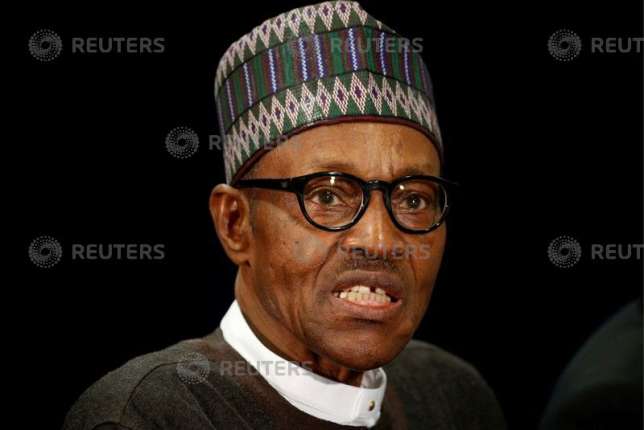Nigerian President Muhammadu Buhari speaks at the United Nations General Assembly, U.S., September 20, 2016 (Reuters) The Nigerian economy grew 1.5% in the second quarter of 2018, a downturn from 1.95% growth recorded in the Q1.
The oil sector shrank 3.9% in the second quarter, dragging the economy to slow growth.
Analyst said policy makers need to put more bold reforms to ensure that income begins to grow.
Nigeria’s economy recorded slow growth in the second quarter of 2018 as oil sector contracted by 3.95% compared to 14.77% growth in the first quarter and 3.53% year-on-year.
The National Bureau of Statistics (NBS) said on Monday, August 27, 2018, that the economy grew 1.5% in the second quarter of 2018, a downturn from 1.95% growth recorded in the first quarter and 2.11% year-on-year in the fourth quarter of 2017.
The growth, NBS said, is N16.58 trillion in real terms.
Yemi Kale , the statistician-general of the federation and director general of the NBS, in a live radio programme on Monday, said there is no major significant surprise in the second quarter report .
For the first time since the exit from recession, growth was driven by the non-oil sector which grew by 2.05%, the strongest growth since the first quarter of 2015.
“However, the relatively slower growth when compared to Q1 2018 and Q2 2017 could be attributed to developments in both the oil and non-oil sectors,” the statistical office said.
The oil sector shrank 3.9% in the second quarter. Oil production dipped to 1.84 million barrels per day (mpbd) from 2 mpbd in the first quarter.
In the quarter under review, aggregate GDP stood at N30.69 trillion in nominal terms.“This represents a 7.85% increase in nominal GDP when compared to the preceding quarter (N28.46 trillion) and 13.57% increase when compared to the corresponding quarter of 2017 (N27.03 trillion),” according to the report. Omotola Abimbola , a fixed income and currency specialist at Ecobank research told Business Insider Sub-Saharan Africa that growth at below 2.7% means income is still declining in the economy.“ Currently at 1.5%, the recovery in the economy remains weak and fragile and Nigeria needs to put more bold reforms to ensure that income begins to grow. ”The World Bank in its latest “Global Economic Prospects report”, for Sub-Saharan Africa anticipated Nigeria economy to grow by 2.1% this year, as non-oil sector growth remains subdued due to low investment, and at […]
